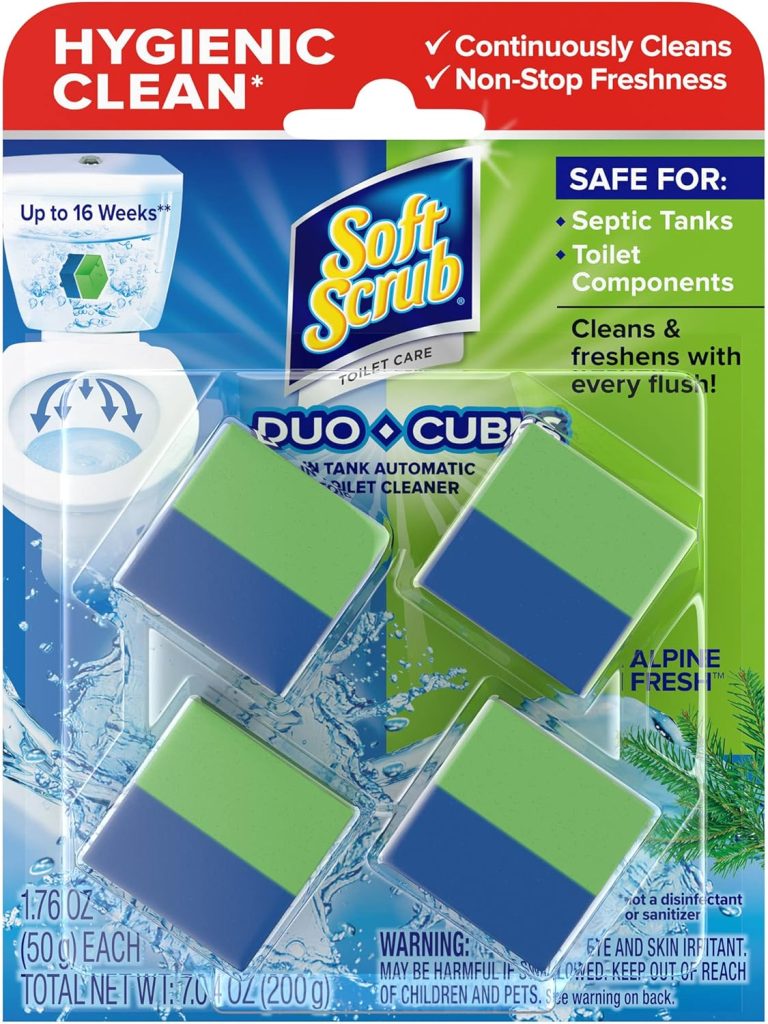
Is Soft Scrub Duo-Cubes In-Tank Toilet Cleaner safe for your septic?
Let’s begin by examining its ingredients:
Ingredients:
- Sodium Sulfate
- Sodium Coco-Sulfate
- Sodium Citrate
- Fragrance
- Colorants
- C12-18 Cocamine MEA
- Sodium C14-17 Secondary Alkyl Sulfonate
- Sodium Carbonate
- Polyvinyl Alcohol (PVA) Film
Ingredient Analysis
✅Septic-Safe or Generally Acceptable Ingredients:
- Sodium Sulfate – Common salt; water-soluble and typically septic-safe in small amounts.
- Sodium Citrate – Biodegradable chelating agent; generally septic-friendly.
- Sodium Carbonate – Also known as washing soda; water softener and pH adjuster, usually safe in moderation.
- Polyvinyl Alcohol (PVA) – A synthetic polymer used in dissolvable films; considered biodegradable under the right conditions but may not break down well in all septic environments.
⚠️Ingredients of Concern:
- Sodium Coco-Sulfate – A surfactant that is somewhat biodegradable but can be harsh and may impact beneficial septic bacteria if overused.
- C12-18 Cocamine MEA – A surfactant and emulsifier that can be irritating and has limited biodegradability; not ideal for septic systems.
- Sodium C14-17 Secondary Alkyl Sulfonate – A synthetic surfactant with poor biodegradability; potentially disruptive to septic tank bacteria.
- • Fragrance – Vague term that may include synthetic, non-biodegradable compounds or mild antimicrobials; not ideal for septic health.
- Colorants – Synthetic dyes that typically do not biodegrade and can accumulate in septic systems.
Verdict: Safe or Unsafe for Septic Systems?
⚠️ Use With Caution — Not Recommended for Regular Septic Use
Soft Scrub Duo-Cubes contain multiple synthetic surfactants, colorants, and fragrance additives that may disrupt your septic system’s bacterial balance, especially with prolonged or frequent use. In-tank cleaners also provide continuous exposure, increasing potential harm. For septic safety, it’s best to avoid these types of products and opt for biodegradable, plant-based liquid cleaners instead.